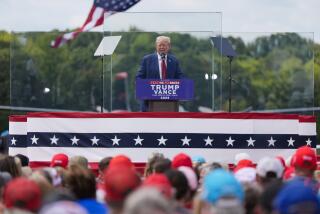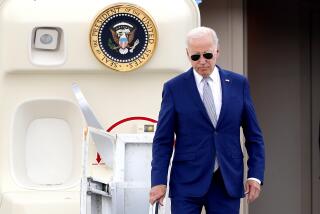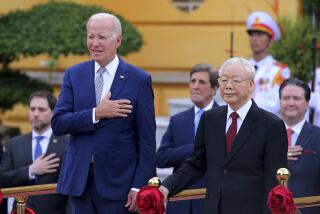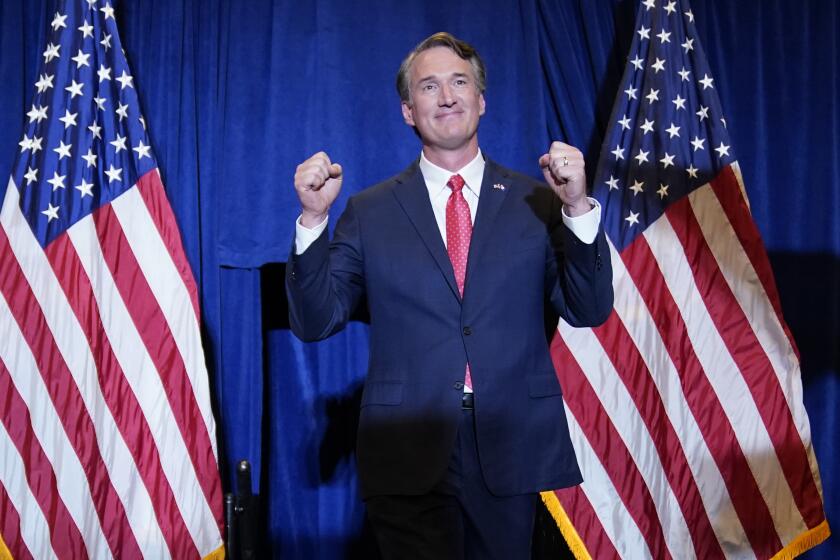Trump proclaims success of his Asia trip but cites no major breakthroughs
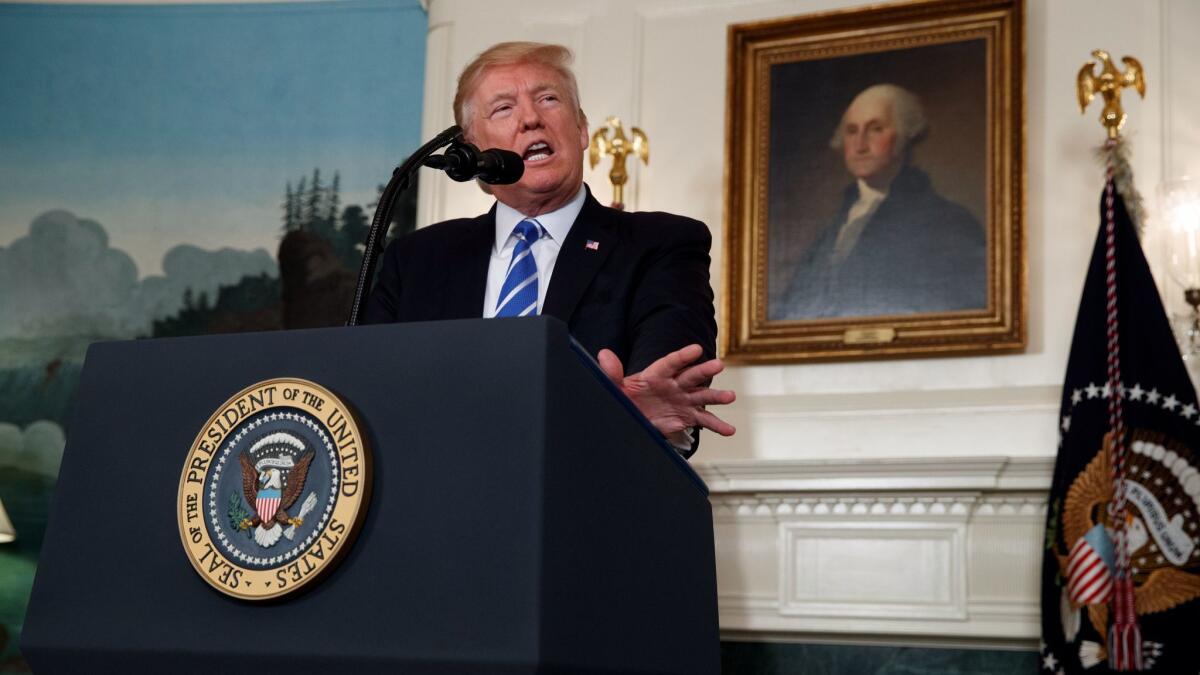
Reporting from Washington — President Trump on Wednesday proclaimed “the tremendous success” of his five-nation tour of Asia, but his message was undermined by the lack of significant accomplishments he could point to from the trip.
The president, who had returned to the White House the evening before looking fatigued, boasted that he projected “a strong, proud and confident America” and argued for allies to provide more support to confront North Korea over its nuclear threats while demanding from them fairer trade with the United States.
Yet Trump announced no significant new agreements on either trade or North Korea. He pointed to new business deals with Asian companies and increased spending from allies for American-made military equipment, but such announcements are common on presidential trips abroad.
Though Trump returned to a number of domestic concerns — an accelerating special counsel investigation into Russian meddling in the election and his campaign’s possible involvement, Republicans’ troubles passing a tax cut bill, and concerns over the party’s prospects in the 2018 midterm elections — Trump seemed buoyed by his reception in the Asian nations.
The president said he was received with “incredible warmth, hospitality and most importantly, respect” at each stop — “further evidence,” he added, “that America’s renewed confidence and standing in the world has never been stronger.”
In remarks to reporters before leaving Asia, and in a tweet on Tuesday, Trump had billed the event as a major statement about achievements from the tour. It turned out to be something of a recap of his first year in office, a familiar review of what he considers his economic accomplishments and a travelogue of not only each stop on the Asia trip but also on an earlier one to Saudi Arabia and European capitals.
His 23-minute review was delivered with a teleprompter from the Diplomatic Reception Room, in front of a portrait of George Washington, suggesting the trappings of a prime-time address, though in late afternoon. Given Trump’s advance buildup, the speech was carried live on cable news networks.
Afterward, Trump walked out and didn’t respond to shouted questions from a reporter about whether he believed the accusers of Alabama Senate candidate Roy Moore, who has lost many Republican leaders’ backing over sexual misconduct allegations, and whether Moore should drop out of the race.
His remarks included stinging criticism of his predecessors for the problems they’d left him, echoing Trump’s attacks on unnamed presidents several times in Asia. In China, standing next to President Xi Jinping in Beijing, Trump blamed mounting trade deficits and North Korea’s advance toward advanced nuclear weapons on past presidents.
Such criticism is rare, and all but unprecedented for a president to make overseas. Trump said of his predecessors, “Some mistakes were born of indifference and neglect, others from naive thinking and misguided judgment.”
The “common thread,” he added, was their “failure to protect and promote the interests of the American people and American workers.”
At the Asia-Pacific Economic Cooperation conference in Da Nang, Vietnam, Trump said, his message on “fair and reciprocal” trade “resonated.” At the conference of the Assn. of Southeast Asian Nations in the Philippines, Trump said he emphasized freedom of navigation: “We made it clear that no one owns the ocean.”
At one point, Trump stopped to look for a bottle of water at the lectern, and noting there was none, was directed by a reporter to a bottle on a small table to his right. The moment, and his awkward sip, drew comparisons on social media to his repeated mocking of Sen. Marco Rubio of Florida during their Republican presidential rivalry, for Rubio’s much-derided water breaks while delivering the party’s response to President Obama’s 2013 State of the Union address.
After speaking, Trump stopped awkwardly as if expecting applause. But there wasn’t an audience in the room beyond a handful of White House staff and White House reporters.
Twitter: @ByBrianBennett
More to Read
Get the L.A. Times Politics newsletter
Deeply reported insights into legislation, politics and policy from Sacramento, Washington and beyond. In your inbox three times per week.
You may occasionally receive promotional content from the Los Angeles Times.
